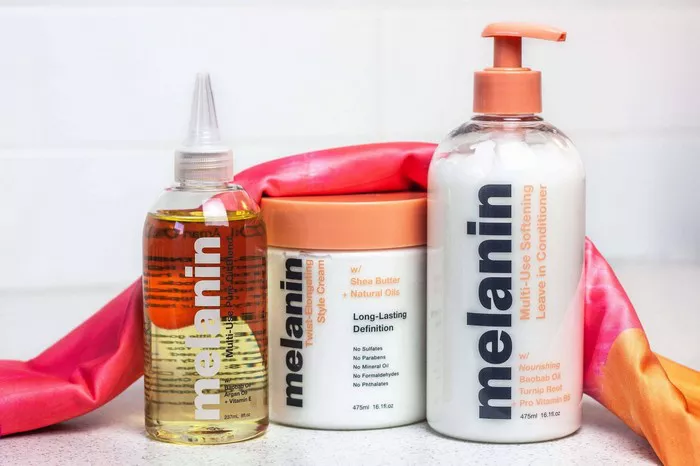Maintaining luscious, healthy hair is a priority for many individuals, and incorporating oils into your daily hair care routine can be a game-changer. Oils have been used for centuries to nourish, protect, and enhance the hair, offering a natural solution to a variety of hair concerns. However, with a plethora of oils available in the market, it can be overwhelming to choose the right one for your daily regimen. In this comprehensive guide, we will delve into the world of hair oils, exploring their benefits, properties, and suitability for daily use.
Understanding Hair Oils:
Hair oils are derived from various sources, including plants, nuts, seeds, and fruits. They contain essential fatty acids, vitamins, and antioxidants that penetrate the hair shaft, providing moisture, strength, and protection. Different oils offer unique properties and benefits, making them suitable for different hair types and concerns.
Benefits of Using Hair Oils Daily:
Incorporating hair oils into your daily routine can yield numerous benefits:
1. Moisture and Hydration: Hair oils act as natural moisturizers, replenishing lost moisture and preventing dryness and brittleness.
2. Strength and Elasticity: Oils penetrate the hair shaft, strengthening it from within and improving elasticity, reducing breakage and split ends.
3. Protection from Damage: Oils form a protective barrier around the hair, shielding it from environmental stressors such as heat, pollution, and UV rays.
4. Stimulated Growth: Certain oils stimulate blood circulation to the scalp, promoting hair growth and preventing hair loss.
5. Improved Texture and Shine: Regular use of oils can enhance the texture and shine of the hair, leaving it smooth, soft, and glossy.
Now, let’s explore some popular oils that are suitable for daily use:
1. Coconut Oil:
Coconut oil is one of the most versatile and widely used hair oils, cherished for its moisturizing and nourishing properties. Rich in fatty acids and vitamins, coconut oil penetrates the hair shaft, hydrating and strengthening it from within. Its lightweight texture makes it ideal for daily use, leaving the hair soft, smooth, and manageable. Coconut oil also has antimicrobial properties that can help prevent scalp infections and dandruff. However, individuals with fine or low-porosity hair may find coconut oil too heavy, so it’s essential to use it sparingly.
2. Argan Oil:
Argan oil, also known as “liquid gold,” is extracted from the kernels of the argan tree native to Morocco. Renowned for its high content of vitamin E and antioxidants, argan oil is a potent moisturizer and conditioner for the hair. It absorbs quickly into the hair, without leaving a greasy residue, making it suitable for daily use. Argan oil helps tame frizz, repair damage, and add shine to the hair, making it a popular choice for those with dry, damaged, or frizzy hair. Its lightweight formula makes it suitable for all hair types, including fine hair.
3. Jojoba Oil:
Jojoba oil is extracted from the seeds of the jojoba plant, native to the southwestern United States. What sets jojoba oil apart is its chemical composition, closely resembling the natural oils produced by the scalp (sebum). This makes jojoba oil highly compatible with the skin and hair, making it an excellent choice for daily use. Jojoba oil helps regulate sebum production, moisturizing the scalp and hair without clogging pores or weighing down the hair. It is particularly beneficial for individuals with oily or combination hair, as it helps balance oil production and prevent greasiness. Jojoba oil also has anti-inflammatory properties, soothing the scalp and promoting a healthy environment for hair growth.
4. Almond Oil:
Almond oil is derived from the kernels of almonds and is rich in essential fatty acids, vitamins, and minerals. It is a lightweight oil that absorbs quickly into the hair, providing deep hydration and nourishment. Almond oil strengthens the hair, reduces breakage, and adds shine, making it suitable for daily use. It also has emollient properties that soften the hair and soothe the scalp, making it an excellent choice for individuals with dry or sensitive skin. Almond oil can be used alone or blended with other oils to enhance its benefits.
5. Olive Oil:
Olive oil, extracted from the fruit of the olive tree, has been used for centuries for its numerous health and beauty benefits. It is rich in antioxidants, vitamins, and fatty acids that nourish and strengthen the hair. Olive oil penetrates the hair shaft, moisturizing and repairing damage from within. It also helps seal the cuticle, reducing frizz and enhancing shine. Olive oil is suitable for daily use, especially for individuals with dry, damaged, or curly hair. However, those with fine or low-porosity hair may find olive oil too heavy, so it’s best to use it sparingly or as a pre-shampoo treatment.
Conclusion:
In conclusion, incorporating oils into your daily hair care routine can have transformative effects on the health, strength, and appearance of your hair. Whether you’re looking to moisturize, strengthen, or add shine, there’s an oil out there to suit your needs. Experiment with different oils to find the perfect match for your hair type and concerns, and enjoy the benefits of luscious, healthy locks every day. Remember to use oils in moderation and avoid overloading your hair, as too much oil can weigh it down and cause buildup. With regular use and proper care, you can achieve the hair of your dreams with the power of natural oils.


